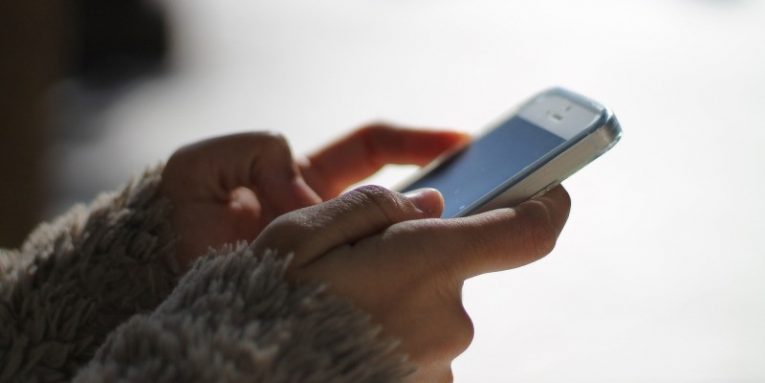Are You Sure Your WhatsApp Messages Are Private?

What’s your preferred social networking app when it comes to communicating with your friends and family? If it’s WhatsApp, there are a few privacy concerns. Of course, most apps have a tainted reputation, and we could nitpick every single one of them. However, in this report, we focus on figuring out whether or not the popular WhatsApp app can be trusted. If you are interested in how to secure the WhatsApp app as well, you will find useful information, and we provide a few practical steps that will help you take security back into your own hands. So, shall we dive in?
WhatsApp privacy concerns
If you use the WhatsApp app, you must know already that there have been plenty of incidents related to the app’s security. Last year, for example, users of this mobile app were rushed to change passwords after it was found that accounts could be hacked using voicemail. This social networking platform has 1.5 billion active users all over the world, and so even the smallest security issues can become very big very fast. Unfortunately, no one can guarantee complete security, and the developers of WhatsApp are not excluded from that. Just recently, the app came under the spotlight after it was discovered that a flaw in the app made it possible for hackers to install the Pegasus spyware.
If hackers exploited this vulnerability successfully, they could have gained access to recorded calls and texts, saved photos, and other available data. Furthermore, it is possible that they could have hijacked the device’s camera and microphone to spy on the victims. The worst part is that this spyware could have slithered in without notice after hackers placed a WhatsApp call. Even if the call was not picked up, spyware could have been executed and used in an illegal manner. The flaw that could have permitted hackers to drop spyware without anyone’s notice has been patched, and if users updated their WhatsApp apps, they are out in the clear. If you are still running an older version, it is crucial that you update the app immediately. All in all, this kind of a security flaw begs to wonder whether or not the application can be fully trusted.
If you look at the history of the app, you might change your opinion because the recent security flaw is not the first one. In fact, back in 2017, hackers threatened to hijack users’ accounts as well. In that case, however, they used an image file with malicious code inside to spread amongst the WhatsApp users. More recently, in August of 2018, malicious calls could have been placed, and if they were answered, the WhatsApp app on iOS and Android devices could have been hijacked. In this case, however, it was reported that the flaw was not exploited. Nonetheless, it is clear that the developers of the app are struggling to ensure complete security.
How to secure the WhatsApp app?
In this situation, the first thing you need to do is update your app. Although the vulnerabilities we mentioned above have all been patched, whether or not these security patches are applied depends on whether or not the app is updated on the user’s device. It is also important to note the device’s version. If it is older than the 2.19.134 version on Android or 2.19.51 version on iOS, you are not safe. Update your operating system and all running apps as soon as possible.
Once your device and your WhatsApp app are up-to-date, you are automatically less likely to be affected by security issues linked to the social networking app. However, it is extremely important that you act cautiously. Needless to say, you have to be most vigilant about suspicious calls and files sent your way. If an unknown caller is trying to contact you, do not engage. That being said, remember that, in some cases, it is enough for the attackers to place a call to infiltrate malware. Due to this, it is a good idea to install a security app that will monitor all activity and, hopefully, will prevent spyware and other kinds of malware from attacking you and your device.
It is also very important to be mindful about the information that you share via your WhatsApp app. If, for example, silent spyware is installed, you do not want the attackers behind it recording any private details. This is why you should always think twice before sending someone banking information, private contact data, login details, or anything else that you would not want to be leaked or used against you. Of course, WhatsApp is meant to be safe, as it offers end-to-end encryption, but you always have to remember that no one can protect you and your privacy better than you.
Finally, we come to password security. If your account was hacked in the past, or if there is a possibility that a security flaw could have permitted attackers to breach your password, you need to update it immediately. The worst things you can do is set a weak password (e.g., qwerty123), make minimal changes to the breached password (e.g., change qwerty123 to qwerty1234), or reuse the same one over and over again. Even if that one password you reuse is strong (e.g., DMm4mExLJJz9u993), if it is leaked, all of your accounts will become vulnerable. We strongly recommend installing a reliable password manager to help you generate, save, secure, and manage your passwords.
Do you have 2-factor authentication set up for your WhatsApp app? If you set it up, your account’s security will become stronger and, in return, your virtual privacy will become stronger too. You can learn how to set up 2-factor authentication and change the WhatsApp password HERE. Hopefully, our tips on how to secure the WhatsApp app have helped you, but if you have questions – add them in the comments area.








